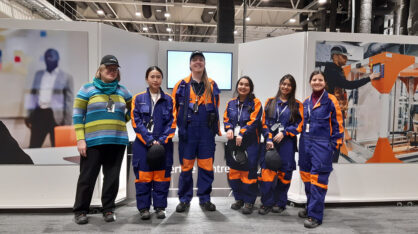What is creativity
Creativity in its comprehensible definition refers to one’s ability to generate different ideas, realising the connections between the ideas, ability to communicate them to others and build a new perspective of looking at things around.
Testing creativity not only considers the number of alternatives or possibilities discovered by a person but also the extent of uniqueness in those discovered new possibilities. Therefore, it can be said that creativity is more about ‘flexibility of mind’ rather than a set of skills. It is the training of the mind to think in a certain way that can be developed over time, gradually.
Why is assessing creativity important?
To be conscious about a particular area of life, we need to reflect on it from time to time so that we can be aware of how we can improve in that area. For example, if we value money we will assess our bank account from time to time, if we value our health, we will assess our lifestyle, and so on. If we are not assessing these measures, we would most likely neglect to value it. Not assessing something is under-emphasizing it and sending out a message of it being less important. Therefore, to be able to value creativity, we need to assess it.
Ways of assessing creativity
The three main ideas to keep in mind while assessing creativity are as follows:
- Measuring creativity is about testing a process and not the person
Assigning the term creative to a person might make them feel pressured to be creative and feel restrictive in terms of thinking in possibilities. Hence, rather than making creativity an inherent trait, creativity should be referred to as a process. Divergent thinking, experimentation, iteration, communication, are a few ways to promote creativity as a process.
- It should focus on measuring the progress rather than the final achievement
Measuring creativity requires a more qualitative approach and not quantitative. This means to promote creativity, we should avoid fixating on the outcome and rather focus on the process, iterations performed during the task. This approach will encourage people to undertake more risks, try new things and hence, perform naturally more creatively.
- Focusing on oneself will help to improve and comparing with others might backfire
Creativity should be measured with yourself and progress made by you rather than comparing it with other people. Self-reflection and assessment might help to focus on own’s progress.
Creativity as a process
Creativity assessment should be designed in a way that focuses on the originality of the work and quality delivery. A few examples that creativity should focus on are:
- Constant learning and developing new skills.
- Open-mindedness to experiment with new ideas and conduct iterations.
- Discovering various ideas and combining them in creative ways.
- Taking failure as an opportunity to learn something new rather than a finishing point.
InnCREA:
Muova’s international project InnCREA aims to transfer, adapt and implement an intergraded training programme package (material and methodologies) for teaching creativity and pioneering in pursuit of innovation to develop HE students soft skills and, at the same time, contribute do diminish the gap between skills in demand in the labour market and the skills offered by HE courses. The project focuses on bridging the gap between the employment market and educational offerings by helping Higher education students develop practical skills.




